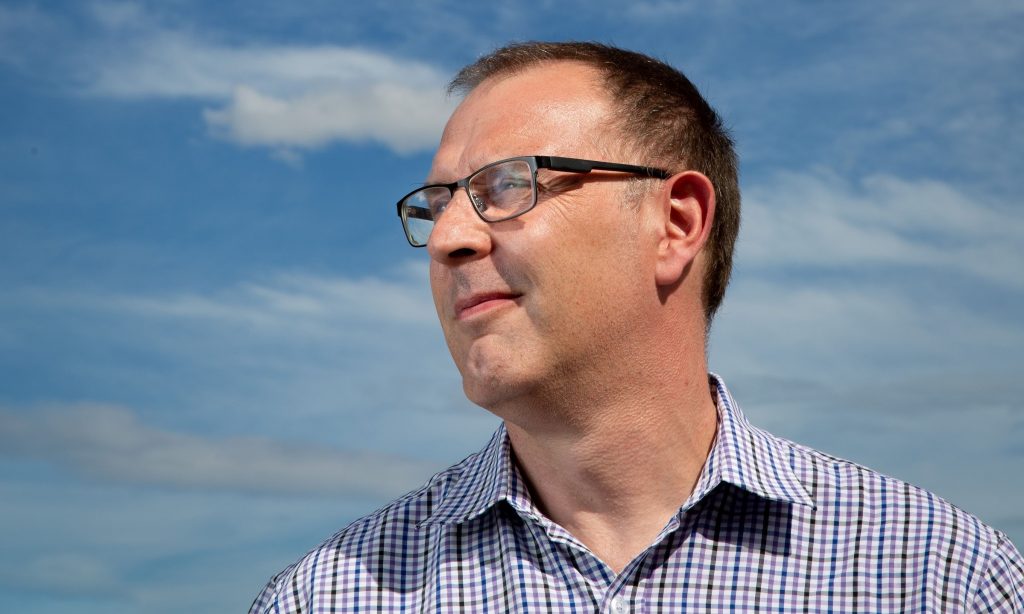Adrian McDonald

The Director of Gateway Antarctica, recently promoted professor at the University of Canterbury, and a previous science lead of the Challenge’s Processes and Observations programme, Adrian is also principal investigator on the research project, “Clouds and Aerosols over the Southern Ocean”. He’s a cloud watcher! But in his busy daily life, he keeps his feet firmly on the ground.
“My involvement in the Deep South Challenge has highlighted the urgency to make better climate projections for the future of Aotearoa New Zealand. Whenever I consider new research efforts or ongoing work, I now ask the fundamental question, ‘How will this potentially improve climate model predictions?’”
I might spend my life fixing small issues,” says Adrian, “but a key piece of information I always tell people is that these models are good. They have real predictive power.
Adrian and his team examine specific physical processes happening in the Southern Ocean, on the Antarctic ice, and in the overlying atmosphere. In comparison to the Northern Hemisphere, with its proximity to the research epicentres of Europe and North America, the Southern Ocean is not well understood by climate science. In turn, what’s happening in Antarctica is not well-represented in global climate models.
The decision to focus on improving the models sounds obvious, but Adrian explains that often, observational work stops at model evaluation. That is, physical science is geared towards understanding how well our climate models simulate reality. The next step, of identifying flaws or strengths in the models themselves, is often missed. “This second step,” Adrian explains, “is critical to help modellers make the simulations better and reduce uncertainties in climate models.” This is the focus for the joint work between the “on-the-ground” scientists and the climate modellers in the Challenge.
“I might spend my life fixing small issues,” says Adrian, “but a key piece of information I always tell people is that these models are good. They have real predictive power.” The constant barrage of climate research, from the mundane to the apocalyptic, must have an impact on the way the general public receives the science. A recent Nature GeoScience article, for example, suggested that stratocumulous clouds might disappear from our lives by the end of the century.
“There are many papers out there that detail the potentially disastrous effects of human-induced climate change.” Adrian sees his job is to inform people about these potential futures and to translate detailed climate studies into information people can actually understand. “While I’m sometimes pessimistic about the way the world is going,” he says, “I’m optimistic that the younger generation particularly are going to demand action. So my job is to keep them informed and make sure they know that some research might be overblown by the media. Stratocumulus disappearing would be a very long way down the track.”
Adrian was very involved in solving the problem of the ozone hole. Does he believe the planet can heal, the way the ozone hole has healed? “The science around the ozone hole and the corresponding global efforts to make policy (the Montreal protocol) are definitely a success story. I think climate change can still follow the same path. There were doubters about CFCs affecting ozone at first. But, once the science was beyond dispute, things changed. We are at this point now. The science [about climate change] is unequivocal.”
Adrian is flexible and generous in the way he works with the many other disciplines involved in the Challenge’s research.
“All the time,” he says, “it’s important to understand that while climate science is well developed, it’s only one set of evidence that stakeholders have to consider. There are some great articles by Sir Peter Gluckman on science advice to government that every scientist should read. When I talk to stakeholders and the general public, the kinds of questions they ask are nearly always a surprise.”
…While climate science is well developed, it’s only one set of evidence that stakeholders have to consider… When I talk to stakeholders and the general public, the kinds of questions they ask are nearly always a surprise.